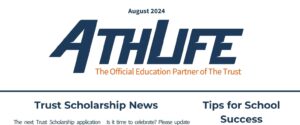There are numerous online degree programs, so choosing the right one can be tough. While searching for the perfect program, be aware that there are excellent online options available. There are also fraudulent online schools as well. Fraudulent programs, known as diploma mills sell degrees and transcripts. Their goal is to make a profit. These “schools” focus on an educational experience where students earn a credential that holds little to no value by employer standards. If you want to be able to find better online programs you have to know what defines a poor program or diploma mill. Read this list to help separate the good from the bad and spot red flags.
Accreditation
Be sure to check that the online degree program is recognized by the Council for Higher Education Accreditation (CHEA) or the Department of Education (DOE). Stay clear of any programs that state they have “international” accreditation, as CHEA and DOE do not recognize any international accreditors.
Pressed to Enroll
Take notice if you receive numerous calls or emails from an online program’s sales team or financial aid asking if you are ready to enroll. They can seem aggressive when discussing loans and payments. If this occurs, consider researching the program more.
Website Address
When looking at a specific program’s homepage, remember to check the website address to be sure it ends with a “.edu” URL. This needs to be checked because the “.edu” URL is utilized in the United States by the higher education industry. If the programs website address ends with a “.com” or “.net” URL, this should raise a flag to investigate further.
Seems too Simple
Remember the saying, “If it is too good to be true, well then it usually is.” Yes, there are institutions that take into consideration prior education and experience. However, it is completed in a specific way with best practices. If you see signs that you can earn a degree with little to no effort, consider staying away from that program.
Website Errors
Any consistent spelling or grammatical errors encountered on an online degree programs’ website, should raise a red flag. Some websites can appear to have a modern, clear webpage and look legitimate. If you see grammatical or spelling errors, it is incumbent upon you to continue your research before enrolling.
Online Presence
Before choosing a program, consider checking to see if the program has a presence on social media. See how much information is available online, if there are any news articles or reviews. You can also research a credible program and compare it to other programs that are of interest.
This Lifelete Fundamental was powered by the U.S. News and Get Educated



